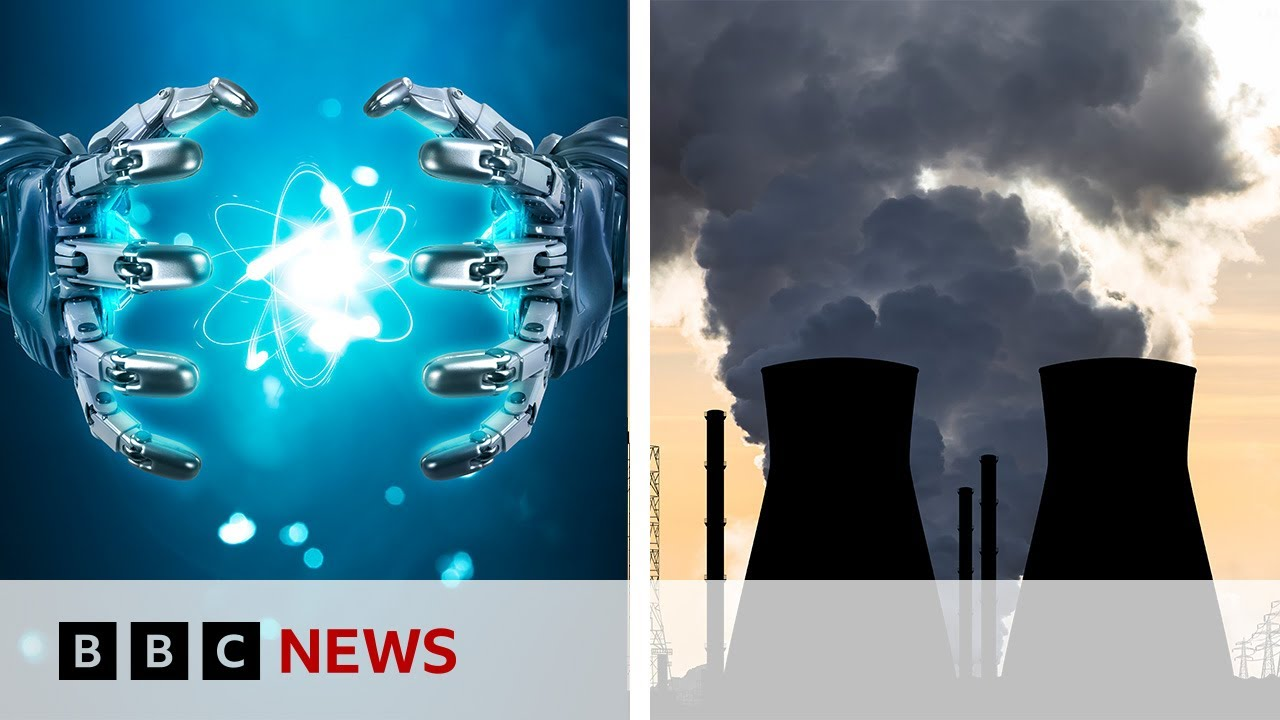The video explores the soaring electricity needs driven by the AI industry, especially regarding large language models, and the consequential investment in nuclear power by major tech companies like Amazon, Google, and Microsoft. It highlights the tension between this demand for energy and the need to mitigate climate impact. Expert guests discuss the challenges and potential solutions, such as using more renewable energy sources or advanced nuclear energy to address the growing power requirements.
The discussion also delves into the effects of AI as a climate solution, questioning whether AI can effectively tackle climate change or contribute further to its challenges. Domain experts emphasize that while AI can play a role, it shouldn't be the sole focus. Issues such as transparency in energy consumption, and the broader implications for businesses trying to balance AI usage with sustainability commitments are considered significant.
Main takeaways from the video:
Please remember to turn on the CC button to view the subtitles.
Key Vocabularies and Common Phrases:
1. generative [ˈdʒɛnərəˌtɪv] - (adjective) - Capable of producing or generating something. - Synonyms: (productive, creative, fertile)
This week we look at how big tech is searching for new sources of energy to power the latest generative artificial intelligence models.
2. catastrophic [ˌkætəˈstrɒfɪk] - (adjective) - Involving or causing sudden great damage or suffering. - Synonyms: (disastrous, calamitous, ruinous)
Well, Tech Informed says prioritizing AI over climate change could be catastrophic.
3. decarbonizing [ˌdiːˈkɑːrbənaɪzɪŋ] - (verb) - Reducing carbon dioxide emissions or the carbon footprint. - Synonyms: (carbon-neutralizing, detoxifying, purifying)
And it's true that there are myriads of problems from climate prediction to actually decarbonizing our electricity grids that have to be solved.
4. sobriety [səˈbraɪəti] - (noun) - The quality of being sober or serious. - Synonyms: (soberness, seriousness, gravity)
I'm increasingly hearing the term digital sobriety and I really like that.
5. ephemeral [ɪˈfemərəl] - (adjective) - Lasting for a very short time. - Synonyms: (transient, fleeting, temporary)
And you have to add that line because ChatGPT is not this magic ephemeral entity.
6. commensurate [kəˈmɛnʃərɪt] - (adjective) - Corresponding in size or degree; in proportion. - Synonyms: (proportionate, equivalent, corresponding)
It's a big investment to build these renewable power sources. And knowing that someone's going to buy that energy in to 8 years to 10 years sometimes is, is really commensurate for these providers.
7. aggravate [ˈæɡrəˌveɪt] - (verb) - To make a problem, injury, or offense worse or more serious. - Synonyms: (worsen, exacerbate, intensify)
While AI offers potential solutions for climate change, its energy demands can aggravate the issue if not carefully managed.
8. permissive [pərˈmɪsɪv] - (adjective) - Allowing or characterized by great or excessive freedom of behavior. - Synonyms: (lenient, indulgent, liberal)
The reason why it, it's all starting in The United States is, because it's, the legislation is a lot more permissive.
9. hyperscale [ˈhaɪpərˌskeɪl] - (adjective) - Pertaining to a massive scale used for IT or data centers to provide computing power and resources to meet high-speed demand. - Synonyms: (large-scale, massive, extensive)
It's hard to provide the output necessary for a hyperscale data center based on solely renewable energy.
10. revival [rɪˈvaɪvəl] - (noun) - An improvement in the condition or strength of something. - Synonyms: (renewal, resurgence, resurgence)
Bloomberg says some of the world's biggest managers of private capital are also making moves to finance and invest in nuclear power plants, latching onto a revival in the sector.
Tech giants harness nuclear energy to power AI - BBC News
The video delves into the intriguing equation that has not only led to the creation of multiple trillion-dollar industries but has also undeniably changed our approach to risk. Do you think that most people are aware of the size, scale, and utility of derivatives? No. No idea. But at its core, this equation comes from physics, from discovering atoms, understanding how heat is transferred, and how to beat the casino at blackjack. So maybe it shouldn't be surprising that some of the best to beat the stock market were not veteran traders, but physicists, scientists, and mathematicians.
In 1988, a mathematics professor named Jim Simons set up the Medallion Investment Fund. And every year for the next 30 years, the Medallion Fund delivered higher returns than the market average. And not just by a little bit. It returned 66% per year. At that rate of growth, $100 invested in 1988 would be worth $8.4 billion today. This made Jim Simons easily the richest mathematician of all time.
But being good at math doesn't guarantee success in financial markets. As a matter of fact, for every Jim Simons making millions, there are countless others who lose it all. You need other ingredients such as foresight, fortitude, and a little bit of fortune. Understanding that the future is unpredictable is one of them. Embracing the chaos that can, at times, swallow even the savviest traders, setting out to control it, instead of letting it control them, is another. In essence, the beauty of this complex equation composure of it and perhaps beyond when practical applications meet unpredictable realities.
Artificial Intelligence, Technology, Innovation, Energy Consumption, Nuclear Power, Climate Change, Bbc News

